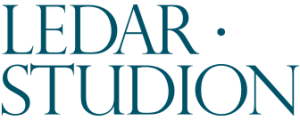Become a Collectively Intelligent Team
Individual skills, structures, and leadership are crucial for a team’s functionality. However, research shows that how a team thinks, feels, and acts together is the most important factor. For a team to operate according to its full potential, trust, openness, and responsiveness are essential. This way, a team becomes collectively intelligent. In theory, it sounds simple, but in practice, it requires effort.
For many years, we have helped management teams and groups improve their communication and collaboration through our proven method, Exploratory Skills Training (UFT®). Since 2016, we have been offering customized programs aimed at creating Collectively Intelligent Teams (KIT). This involves building a culture within the group based on trust, openness, and responsiveness. Using tools for individual and group analysis, as well as exercises related to both cognitive understanding and emotional relationships, we help teams progress in their processes and improve their ability to work together, which is reflected in their collective results and group satisfaction.
Team development occurs in 3 steps:
Measure: A current state analysis provides a picture of where the team stands and identifies areas where training and exercises will yield the most significant results.
Train & Explore: Training is tailored to the team’s needs and conducted in 2-day modules with intervals of approximately 3-6 weeks.
Reflect: All training is framed by reflection because it is fundamental to reinforce learning during the exercises and to create a reflective and self-learning group that can continue developing these skills even after the program is completed. We always follow up with measurements afterward to track results and development.
Almost everything we do is expected to be done together with others. Sometimes, the sum of participants’ capacities becomes greater than the parts; however, it often falls short. Modern research clearly shows that the effectiveness of groups and their collective ability to achieve results depend entirely on how team members relate to and interact with each other. To be a high-performing team, psychological safety within the group is essential. This means that trust, openness, and communication need to be present and functioning.
The time spent on the program is dedicated to providing participants with practical opportunities to train and develop their individual communication skills while simultaneously creating and reinforcing the critical abilities needed to enhance a team’s collective intelligence.
Examples from content
- Perception
- Communication style and personality
- Listening, contact, and empathy
- Group dynamics and collective intelligence
- Responsibility, openness, and trust in a group
- Social responsiveness
- Feedback
- Conflict resolution
- Group processes
- Psychological safety
- Reflection
Interest Sign-Up
Scope
4 sessions of 2 days with approximately 4 weeks between each session
Tools
• Myers Briggs Type Indicator
• Values Online™
• Team Pro Inventory
Coaches
• Leadership developers
• Voice and body language coaches

